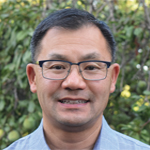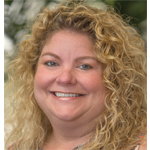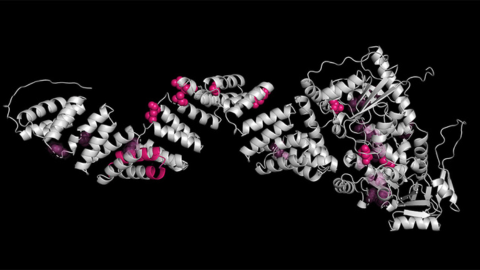Five tips for career success
Almost 200 graduate students and postdoctoral researchers gathered April 21 for a career-development event at the annual meeting of the American Society for Biochemistry and Molecular Biology where they learned about a diverse array of scientific careers, participated in skill-building workshops and networked with peers and speakers. The entire event was full of useful information; below are five tips for career success that resonated with me.
1. Your career path is less like a ladder and more like a jungle gym.

We’re all programmed to see our career path as a series of linear steps up to a final goal — undergraduate, graduate, postdoc, forever job — but this rarely happens. You may move sideways in your career or even take a step or two back before moving up the ladder again. Don’t be afraid to take a risk when opportunities present themselves if they will help you build your unique career. —Robert To, associate director of quality control conformance, Bayer HealthCare
2. Create a “skills toolbox” and use it.

The skills you develop as a trainee help you stand out in the job market. When you’re in the lab, talk to your colleagues about their experiments. Challenge yourself to learn new techniques both in and out of your field. Work on developing critical thinking skills, which will help you however your career evolves.
And acquire skills outside the lab. Explore entrepreneurship, science writing and communication, policy, outreach, education, even art — whatever resonates with you. This will help build you into a well-rounded candidate. — Nicole Purcell, associate professor of pharmacology, University of California, San Diego
3. Communication skills are critical to success. Less jargon, more passion.

Science is a language most people don’t speak fluently. When communicating with diverse audiences, think of yourself as a translator. Eliminate jargon and create analogies to make your research accessible. Work on making your science story relevant to the audience, which may mean that you don’t share every piece of data you have collected. Most importantly, practice.
Training courses like the ASBMB’s Art of Science Communication are available to help you develop these skills. — Susanna Greer, director of clinical research and immunology, American Cancer Society
4. Work on believing that you belong in the room.

Imposter syndrome is a reality for many people in the sciences, especially those from underrepresented groups. In professional interactions, be confident and remember that your skills and knowledge got you where you are today. Don’t be intimidated by people who question what you know, and don’t let negative experiences diminish your self-confidence. — Andrea Macaluso, director of outreach and partnerships, SpringerNature
5. Luck is what happens when preparation meets opportunity. You don’t need to see the entire staircase to take the next step.

With these words from the Roman philosopher Seneca and Martin Luther King Jr. in mind, explore your options, network and talk to people in fields that interest you. Don’t know where to start? Start with videos under the heading “Career Paths” at asbmb.org and the career section of the ASBMB Today website. Once you find a job that interests you, identify people in the field and ask for informational interviews. For the price of a cup of coffee, you can get started on the path to career success. — Deborah Nguyen, vice president of research, Cellular Approaches
Advice from 2018 ASBMB award winners
|
|
|
|
|
|
|
|
|
|
|
|
|
|
|
Enjoy reading ASBMB Today?
Become a member to receive the print edition four times a year and the digital edition monthly.
Learn moreFeatured jobs
from the ASBMB career center
Get the latest from ASBMB Today
Enter your email address, and we’ll send you a weekly email with recent articles, interviews and more.
Latest in Careers
Careers highlights or most popular articles

Upcoming opportunities
Friendly reminder: May 12 is the early registration and oral abstract deadline for ASBMB's meeting on O-GlcNAcylation in health and disease.

Sketching, scribbling and scicomm
Graduate student Ari Paiz describes how her love of science and art blend to make her an effective science communicator.

Embrace your neurodivergence and flourish in college
This guide offers practical advice on setting yourself up for success — learn how to leverage campus resources, work with professors and embrace your strengths.

Upcoming opportunities
Apply for the ASBMB Interactive Mentoring Activities for Grantsmanship Enhancement grant writing workshop by April 15.

Quieting the static: Building inclusive STEM classrooms
Christin Monroe, an assistant professor of chemistry at Landmark College, offers practical tips to help educators make their classrooms more accessible to neurodivergent scientists.

Unraveling oncogenesis: What makes cancer tick?
Learn about the ASBMB 2025 symposium on oncogenic hubs: chromatin regulatory and transcriptional complexes in cancer.

